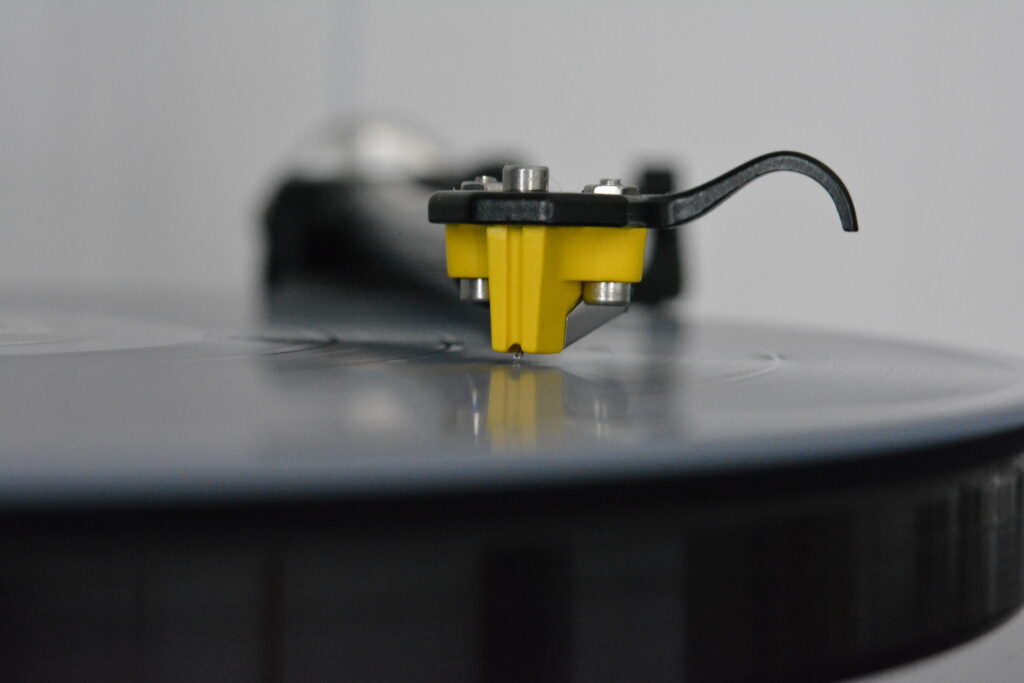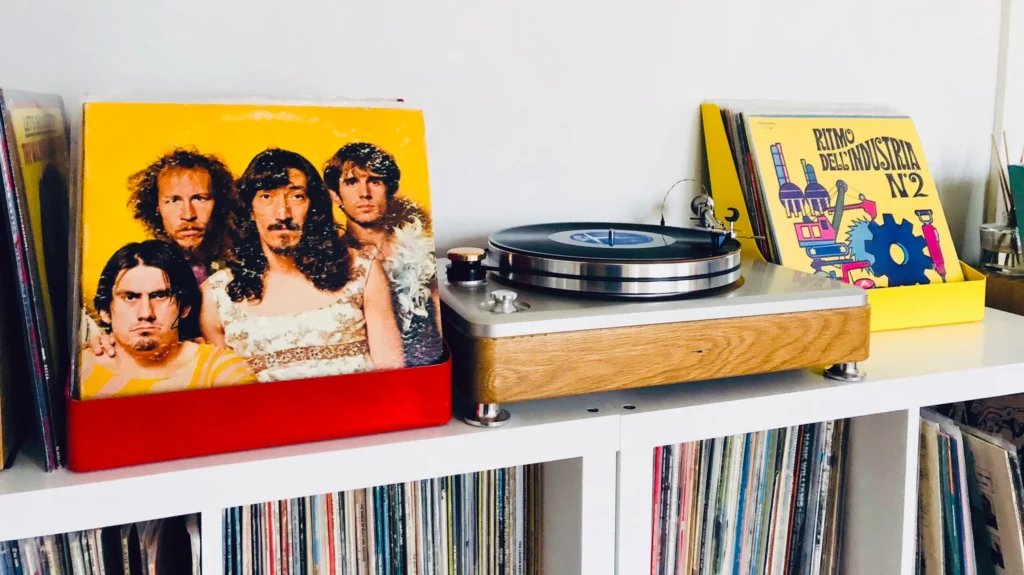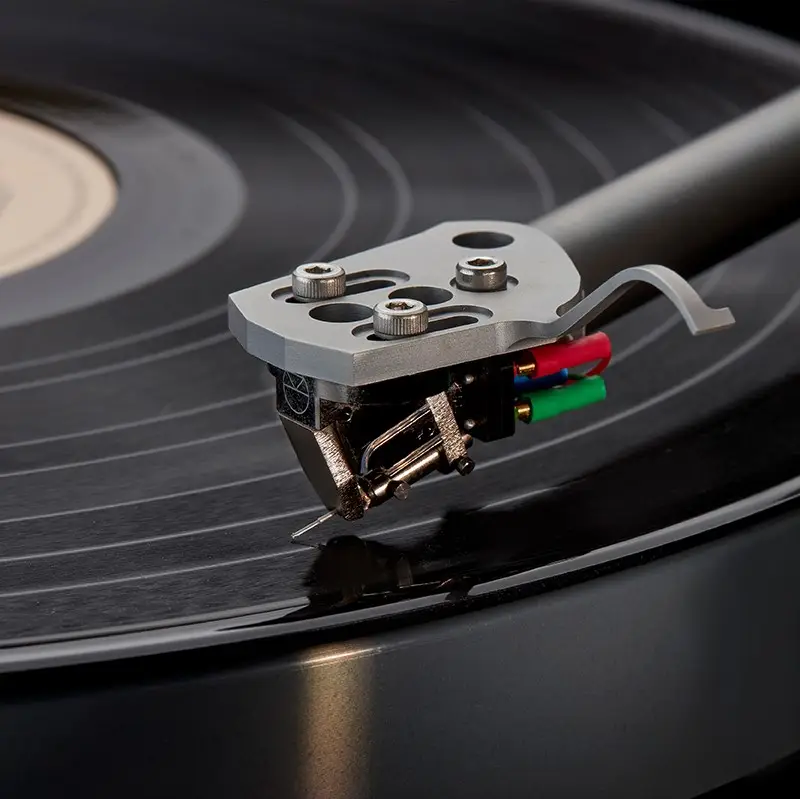
We're often asked about analogue versus digital. In fact this is something we've been discussing since CD players were invented and nothing has changed. Whilst these days streaming has moved forward the experience and CD has come of age (arguably at the end of its life), growth in sales of vinyl and record players are an increasingly part of this debate.
Clearly both technologies have merit and both continue to develop, even though both technologies are fairly established. In terms of performance we know that both can offer exceptional performance and access to music. But it is vinyl that still invokes the most zeal in our customers both new and old and I thought we'd look at some of the reasons why.

People who prefer listening to vinyl over digital often cite several reasons, which range from aesthetic and nostalgic to more technical ones. Here are some common factors:
Cultural Trend and Community: In recent years, vinyl has seen a resurgence in popularity, with younger generations embracing it not only for the sound but also as part of a cultural or lifestyle statement. Vinyl is often associated with indie, retro, and vintage subcultures, and this sense of community and identity can be a strong draw.
Sound Quality and Warmth: Many vinyl enthusiasts believe that records offer a warmer, more natural sound compared to digital formats. This is due to the analogue nature of vinyl, which some claim can capture subtleties in sound that digital compression might lose.
Nostalgia and Ritual: Vinyl offers a more tangible, nostalgic experience. The physical act of handling records, placing them on a turntable, and the ritual of flipping them can evoke a sense of connection to music that digital formats (streaming or MP3s) can lack. For some, it's about more than just the music—it's the experience.
Album Artwork and Packaging: Vinyl records often come with large, detailed album covers that many collectors appreciate. The physicality of the album, including the cover art, inserts, and overall packaging, offers a more immersive experience than the small, digital artwork displayed on screens.
Collectability and Value: Vinyl records can be seen as collectible items, and some people enjoy hunting for rare or limited edition albums. The tangible nature of vinyl makes it a more permanent item, unlike digital files that can be lost due to hard drive failure or obsolescence.
Perceived Authenticity: Vinyl is sometimes viewed as a more “authentic” or “genuine” way to experience music. Some people feel that vinyl represents a closer, more intentional way of engaging with music compared to the ease and convenience of digital formats.
Listener Engagement: Listening to vinyl often requires more active engagement. You can’t skip tracks easily or shuffle an album, so the listener has to pay attention to the entire side of a record, creating a more focused listening experience. This is markedly different to how people generally stream.

Another thing we're experiencing more is that new vinyl fan can have very high expectations on vinyl being quiet. This isn't always possible and even if it is to start with, then use can make vinyl a little noisier. There's also static too.
For some vinyl lovers, surface noise—such as pops, crackles, and hissing sounds—becomes an important and sometimes obsessive aspect of the listening experience for several reasons:
- Authenticity and Imperfection: Surface noise is often seen as a hallmark of analogue audio, making it feel more "real" or "authentic." For some listeners, these sounds add character and warmth to the record. Rather than detracting from the experience, they can create a sense of nostalgia or nostalgia for a time when records were the primary way to listen to music.
- Focusing on the Details: Vinyl enthusiasts often have a deep connection to the physical format, and they are keenly aware of all its intricacies. Surface noise becomes part of that focus. Collectors may become obsessed with minimizing or eliminating noise because they want to experience the full spectrum of sound and feel a sense of mastery over their setup. For some, this obsession reflects a desire for perfectionism in their listening environment, as the absence of unwanted noise can signify a high-quality system.
- Cultural Norms and Ritual: For some vinyl collectors, dealing with surface noise is simply part of the culture surrounding vinyl records. It’s often romanticized as part of the overall experience of analogue music—people may be drawn to the idea that owning a record and listening to it is something to be tended to with care, much like tending to a garden. Cleaning records, adjusting the turntable, and even worrying about surface noise can become a ritual that deepens the listener's connection to the medium.
- Perception of Sound Quality: Many audiophiles obsess over surface noise because they see it as an indicator of the overall quality of the vinyl, pressing, and playback system. A quiet pressing with minimal surface noise is often considered a sign of a high-quality pressing and a well-calibrated turntable. Vinyl lovers may become fixated on removing noise as part of a larger pursuit of the "perfect" listening experience, even though total silence is practically impossible to achieve.
- The "Analogue Experience": Vinyl is often appreciated for its imperfections, and surface noise becomes part of what makes it distinct from the sterility of digital formats. In a way, the surface noise acts as a reminder of the physical nature of vinyl—it's a product of the grooves being worn by the needle, a tactile process that many listeners find appealing. The presence of surface noise can be seen as an essential part of the "analogue experience," adding depth and a sense of connection to the music.
- A Form of Ownership and Identity: For some vinyl collectors, surface noise also reflects a certain kind of ownership over the record. It can be seen as a personal mark of the record's history—the stories it tells through the sounds it makes over time. Whether it’s from wear, age, or how the record was cared for, these imperfections can tie the listener more deeply to the individual record’s journey.
Ultimately, the obsession with surface noise often comes down to how vinyl listeners view the medium—as an immersive, tactile, and analogue experience with unique qualities that digital formats can't replicate. The presence of surface noise is a part of that, for better or for worse, and those who are deeply invested in vinyl can feel strongly about its impact on their listening experience.
Next time we'll discuss digital in greater detail.